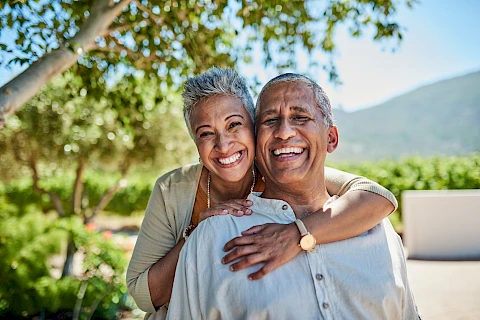
Staying healthy and maintaining a robust immune system is crucial for seniors, especially those receiving in-home care. One nutrient that plays a pivotal role in boosting senior immunity is Vitamin D. Known as the "sunshine vitamin," Vitamin D is essential for healthy bones and an optimized immune response.
Vitamin D and Its Role in Immunity
Vitamin D is a fat-soluble vitamin that promotes calcium absorption for bone health. However, more recent research has shed light on its significant contribution to our immune system. Active Vitamin D binds to immune cells and bolsters their ability to fight off pathogens. For seniors, maintaining an optimal Vitamin D level is particularly crucial. The immune system naturally weakens with age, making seniors more susceptible to illnesses. Therefore, adequate Vitamin D can empower a senior's immunity, promoting overall well-being.
Risks of Vitamin D Deficiency in Seniors
Sadly, Vitamin D deficiency is widespread among seniors. Many factors contribute to this, including less time outdoors, reduced skin thickness, and impaired absorption due to certain medications or conditions. This deficiency is concerning as it poses serious health risks. Aside from weak bones and muscles, a Vitamin D deficiency can compromise a senior's immunity, making them more prone to infections and diseases. Some common symptoms include fatigue, frequent sickness, and slow wound healing.
Ensuring Adequate Vitamin D Intake for Seniors
How can seniors ensure they get enough Vitamin D? First and foremost, diet plays a crucial role. Foods rich in Vitamin D include fatty fish, egg yolks, and fortified foods like cereal and orange juice. However, diet alone may not provide enough Vitamin D, particularly for seniors with dietary restrictions or poor appetite.
This is where supplements come in. Vitamin D supplements are often recommended for seniors, especially those with limited sun exposure. Following the prescribed dosage is essential, as excessive intake can lead to hypercalcemia, a condition characterized by too much calcium in the blood.
In addition, sunlight triggers the skin to produce Vitamin D. Encouraging safe sunlight exposure, perhaps while reading a book or enjoying a cup of tea on the porch, can be quite beneficial. Balance this with skin cancer precautions, such as sunscreen and avoiding midday sun.
Tailoring Vitamin D Intake for Seniors in In-Home Care
Ensuring adequate Vitamin D intake can be more challenging for seniors in in-home care, but it's achievable. Caregivers can stringently monitor daily Vitamin D intake, ensure seniors have Vitamin D-enriched meals, and manage the prescribed supplements.
Moreover, caregivers can facilitate safe sunlight exposure. It could be as simple as opening the curtains to let natural light in or helping seniors spend a little time outside if their health allows.
Is Your Senior Getting Enough Vitamin D?
If you're seeking professional in-home care services for your loved ones in Norristown, King of Prussia, Phoenixville, Collegeville, or anywhere in Montgomery County, consider Senior Helpers Phoenixville. Our dedicated team is well-versed in providing tailored care, including ensuring seniors get the right amount of essential nutrients like Vitamin D. Contact us today to learn how we can support your loved one's health and overall quality of life.